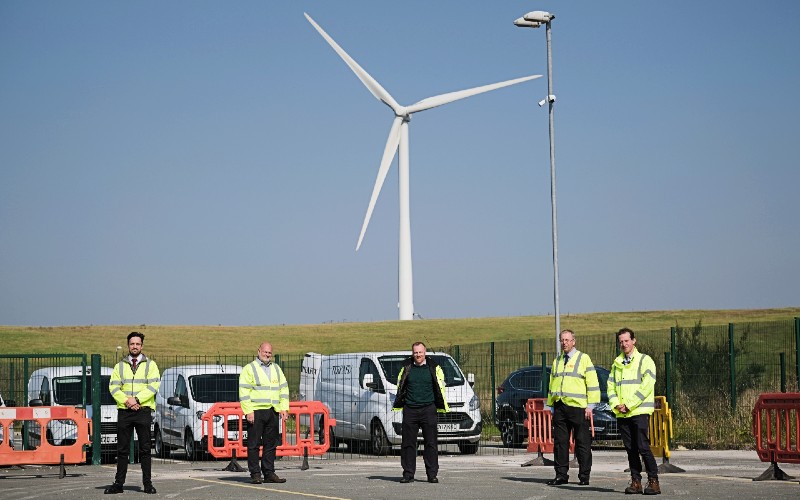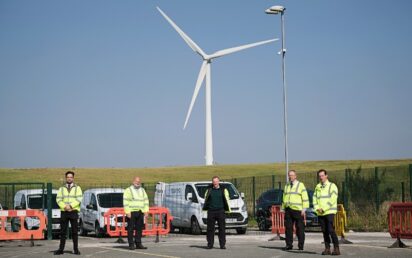A Nottingham-based energy storage startup has raised £1 million in seed funding and appointed an executive chairman.
Cheesecake Energy said the funding will fuel the development of its manufacturing capabilities and support product development of its eTanker storage system.
The round was led by Imperial College Innovation Fund alongside prominent investors including Perivoli Innovations, former Jaguar Chairman, Sir John Egan and other angel investors.
CEL has also added new members to its board of directors, including Josephine Wapakabulo (former founding CEO of Uganda National Oil Company), Brijesh Roy (seed investment manager, Imperial College London) and Gareth Brett (CTO, Highview Power) with former Williams F1 CEO Adam Parr named as executive chairman.
eTanker takes established compressed air energy storage concepts and revolutionises them by storing two-thirds of the electricity in the form of heat which can be stored at far lower cost.
To store the energy, electric motors are used to drive compressors, which deliver high pressure air & heat into storage units. When the electricity is required, the high-pressure air and heat is passed back through the same compressor (but now working as a turbine), which turns a generator to produce electricity.
The company believes its system will cut the cost of storing energy by 30-40% and offers a solution that can be used in several sectors including electric vehicle charging, heavy industry and renewable energy generation.
https://businesscloud.co.uk/blog/2021/10/04/uks-top-100-disruptive-startups-revealed/
The startup has filed 10 patents for stationary, medium-long-duration, long-lifetime energy storage technology. It is based on innovative design work by CEL, a spin-out from over a decade of research at University of Nottingham.
Employing circular economy principles, truck engines are converted into zero-emission electrical power-conversion machines for putting energy into and out of storage. Its technology brings together the low cost of thermal storage, the turnaround efficiencies of compressed air energy storage, together with the long life and robustness of a mechanical system, making a game-changing technology in a modular containerised package.
“Working with industrial operations and local government and witnessing the major costs and disruption customers face when attempting to decarbonise was really the impetus in identifying a need for distributed, medium-duration storage,” said CEO Mike Simpson.
“We realised that current available technologies were not feasible for key sectors like transport and commercial industries where longer discharge durations are needed and batteries become uneconomic.”
The company, which is currently working to complete its first pilot system with Nottinghamshire County Council, plans to use the funding to execute their technology roadmap before raising an additional round later in 2021 to deploy several additional pilot projects with fleet operators and industrial manufacturing businesses.
CEL says it has seen extensive interest in its technology from local councils, electric vehicle fleet operators, industrials, renewable energy generators and microgrid developers, eager to utilise the technology to reduce reliance on imported critical raw materials and environmentally unfriendly technologies.

